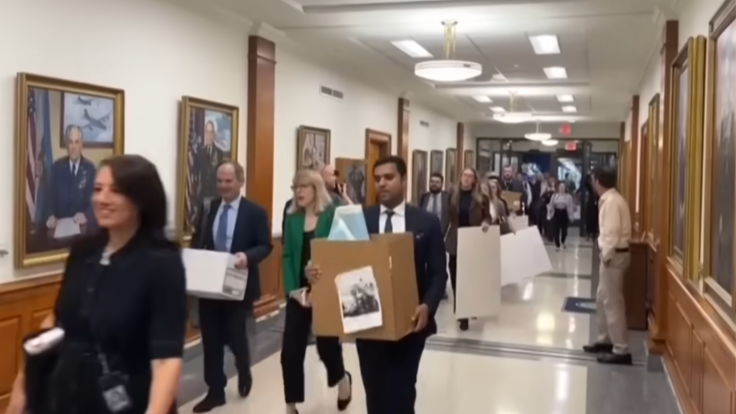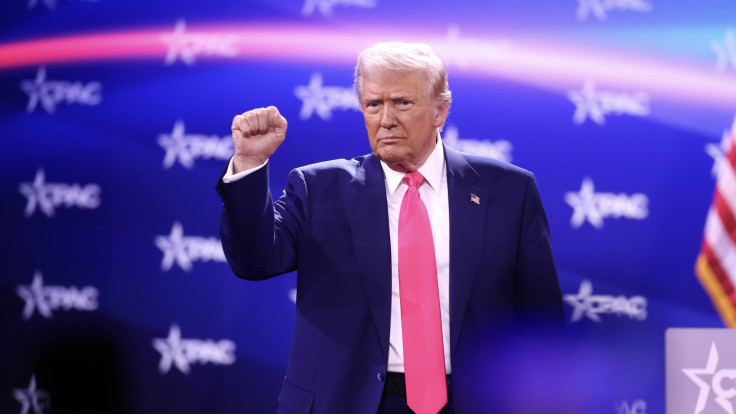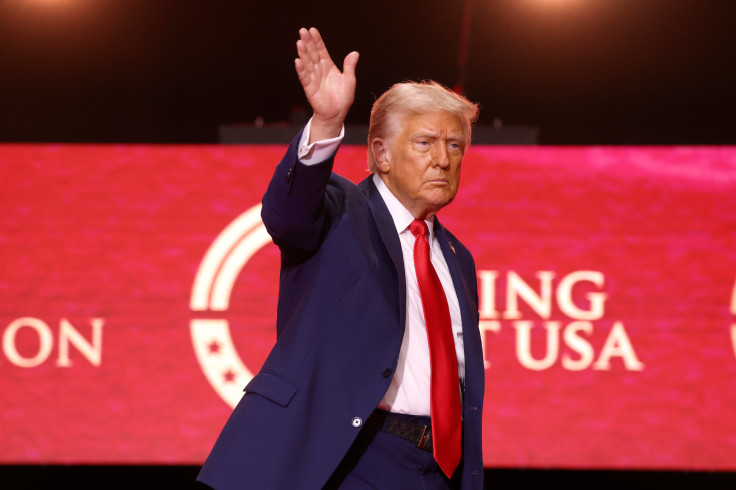Is Trump a Dictator?: Fury As Journalists Storm Out Of Pentagon Briefing In Protest Against Trump's Tightened Control
Major US news organisations turned in Pentagon press passes after the Defence Department introduced a restrictive reporting pledge

Reporters walked out of the Pentagon in a dramatic repudiation of a new Defense Department media pledge that critics say effectively hands the military near-total control over what the public may learn.
Editors and correspondents from most major US outlets, including The New York Times, Reuters, AP, CNN and Fox, refused to sign a Pentagon 'press pledge' and turned in their credentials, saying the measure would criminalise routine newsgathering and silence essential oversight.
The exodus was orderly but unmistakable: dozens of journalists packed boxes and left the press area in Washington, D.C., refusing to accept what they described as an unprecedented curtailment of press freedom.
What the New Rules Require and Why Reporters Recoiled
The Pentagon memo, circulated in September and described by defence correspondents as some 17–21 pages of new conditions, requires credentialed reporters to acknowledge that they will not solicit or publish unauthorised material, including some unclassified information, and limits unescorted access to parts of the building.
Significantly, the guidance allows the Defence Secretary to revoke credentials for those judged to have attempted 'unauthorised access' or to have sought material that the department has not approved for release. Journalists and press associations say the wording effectively threatens normal, constitutionally protected reporting.

For many in the Pentagon press corps, the pledge's practical effect was simple: accept restrictions on newsgathering or give up decades of inside access to the world's most important military headquarters.
The Pentagon said the policy was a 'common-sense' measure aimed at protecting national security; Pentagon spokespeople argued it merely clarifies what personnel may lawfully disclose and does not bar independent reporting. Pentagon officials also noted only a small number of credentialled reporters acknowledged the policy, implying the rest had chosen to leave voluntarily rather than comply.
Visual Proof: The Walkout — Video and Official Reaction
The scenes of the walkout are now available in footage posted by major outlets and broadcasters: reporters carrying boxes from the press area, television booths dismantled and corridors emptied as staff removed equipment.
Those recordings provide primary, on-the-ground evidence of the scale and urgency of the protest; broadcast and user-uploaded clips are hosted on platforms such as YouTube and were widely shared during and after the clearance deadline. The visual record crystallises what journalists describe as a historic rupture between the Pentagon and its formerly resident press corps.
Media organisations and correspondents' associations were quick to condemn the policy. The Pentagon Press Association called the move an 'unprecedented message of intimidation', saying the department's approach risked insulating the public from information about a defence budget and operations funded by taxpayers, a budget that runs to roughly £745 billion (about $1 trillion).
Press freedom groups and newspapers argued this was not a technical change but a fundamental assault on democratic accountability.
Oversight, Secrecy and the Public's Right to Know
The stakes are not merely institutional pride. The Pentagon manages a near-trillion-dollar defence apparatus whose procurement, operational failures and policy choices are of direct public interest. Critics warn that narrowing who may report from the building — and under what conditions — will hinder scrutiny of waste, misconduct and strategic decisions that shape war, diplomacy and national security.
For the press, the pledge is not about occasional leaks; it is about the principle that reporters may question, investigate and publish what the public has a right to know.

Supporters of the policy, including some in the Trump administration, frame it differently: as a measure to prevent harm, to avoid the publication of material that could endanger operations or personnel, and to impose clearer responsibilities on reporters who have access to sensitive spaces.
Yet many legal scholars say the language as written creates chilling uncertainty, the risk that routine questioning could be construed as 'unauthorised solicitation' and trigger disciplinary action. That uncertainty, they argue, is the policy's most corrosive effect.
With badges returned and physical access reduced, Pentagon coverage will inevitably shift: outlets say they will rely more on open sources, on-the-record briefings elsewhere, FOI requests and investigative work outside the building.
Lawmakers, press associations and civil liberties groups are calling for an immediate review; several have warned that aggressive enforcement could prompt litigation and new congressional scrutiny. Whether the Pentagon will soften or stand firm remains a live political and legal contest.
© Copyright IBTimes 2025. All rights reserved.




















